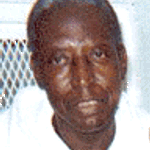Entries by Death Penalty Information Center
News
Mar 26, 2008
STUDIES: “Prosecutorial Discretion and Capital Punishment in Missouri”
A recent Arizona Legal Studies paper on murder cases in Missouri found both geographical and racial disparities in the application of the death penalty.“Life and Death Decisions: Prosecutorial Discretion and Capital Punishment in Missouri,” by Katherine Barnes of Arizona University Law School, and David Sloss and Stephen Thaman of St. Louis Univeristy Law School, studied 1046 cases of intentional homicide in Missouri to determine geographical and racial effects in the…
Read MoreNews
Mar 25, 2008
U.S. Supreme Court Exempts Texas Courts from World Court Ruling
On March 25, the U.S. Supreme Court ruled 6 – 3 in Medellin v. Texas (No. 06 – 984) that the President does not have the authority to order states to bypass their procedural rules and comply with a ruling from the International Court of Justice (ICJ). The case arose from an appeal by Jose Medellin, a Mexican citizen on Texas’ death row who, along with 50 other Mexican death row inmates, filed suit in the ICJ alleging a violation of their rights under the Vienna Convention…
Read MoreNews
Mar 25, 2008
Georgia Rejects Non-Unanimous Jury Verdicts Proposal
On March 20, the Georgia State Senate overwhelmingly (44 – 7) rejected a proposal that would have allowed non-unanimous jury sentencing verdicts in capital cases. The proposal would have permitted a judge to impose a death sentence when at least 10 of 12 jurors supported it. Current Georgia law requires that the jury vote unanimously for a death sentence. Some opponents of the bill said it would have put Georgia’s entire death penalty law in jeopardy. (All other…
Read MoreNews
Mar 24, 2008
After Two Supreme Court Reversals, Texas Man Sentenced to Life
Thomas Miller-El received a life sentence from a Texas judge after pleading guilty to a Dallas murder in exchange for the prosecution’s agreement not to seek the death penalty. Miller-El had originally been sentenced to death in 1986. He raised an appeal asserting that potential black jurors had been improperly stopped from serving at his trial. The appeal was denied by the lower courts, but the U.S. Supreme Court ruled (8 – 1) in 2003 that he should have been…
Read MoreNews
Mar 20, 2008
New Poll Finds Increase in Opposition to Death Penalty
A recent Harris Interactive poll of over 1,000 American adults found that the number of people who oppose the death penalty has increased since 2003. Thirty-percent (30%) of those sampled oppose the death penalty, an increase of 8 percentage points in the past 5 years. The percentage of respondents who“believe in capital punishment” has dropped significantly since 1997, when 75% supported the death penalty. In 2008, that number had declined to 63%, the lowest…
Read MoreNews
Mar 19, 2008
Supreme Court Strikes Down Conviction of Death Row Inmate Because of Bias in Jury Selection
The U.S. Supreme Court ruled 7 – 2 on March 19 that the conviction and death sentence of Allen Snyder should be overturned because the trial judge allowed a potential juror to be rejected on what appeared to be racial grounds. The decision, written by Justice Samuel Alito, focused on the elimination of an African-American man from jury panel. The Court rejected the prosecution’s non-racial reasons for striking this juror:“The implausibility of this explanation is…
Read MoreNews
Mar 17, 2008
NEW VOICES: U.S. Attorney General Opposes Death Sentences in Military Commission Trials
U.S. Attorney General Michael Mukasey said that he hopes that the Guantanamo prisoners accused of terrorism do not receive the death penalty in the upcoming Military Commission trials because it would give them the martyrdom that they want. In a recent talk to British economic students, Mukasey said he supports the death penalty, but,“In a way I kind of hope from a personal standpoint … I kind of hope they don’t get it. Because many of them want to be martyrs .…”…
Read MoreNews
Mar 17, 2008
Georgia Supreme Court Denies New Trial to Death Row Inmate with Innocence Claim
On March 17, the Georgia Supreme Court voted 4 – 3 against Troy Davis’ request for a new trial. Davis, who is on death row for the 1989 murder of a police officer, claims he is innocent and that he was a victim of mistaken identity. Since his trial in 1991, seven of the witnesses called by the prosecution have recanted their testimony. Chief Justice Leah Ward Sears wrote in the dissenting opinion that Davis should at least have a hearing because,“In this case,…
Read MoreNews
Mar 13, 2008
NEW RESOURCES: Native Americans and the Death Penalty
The Death Penalty Information Center is pleased to announce the introduction of a new Web page on Native Americans and the death penalty. The page contains information on the use of the death penalty against Native Americans and includes the results of an extensive historical study conducted by David V. Baker. His research was recently published in the December 2007 edition of Criminal Justice Studies, and is the first of its kind. Baker reported 464 executions of…
Read MoreNews
Mar 13, 2008
NEW VOICES: Murder Victims’ Families Testify in Maryland on the Death Penalty
Family members of murder victims testified before the Maryland Senate Judiciary Committee on March 6 about the painful toll the death penalty has taken on their lives, stating that the resources spent on seeking death sentences could be better used elsewhere.“I’ve watched too many families go through this to make me believe the system will ever work,” said Kathy Garcia, whose nephew was murdered 20 years ago. She continued, “The death penalty…
Read More